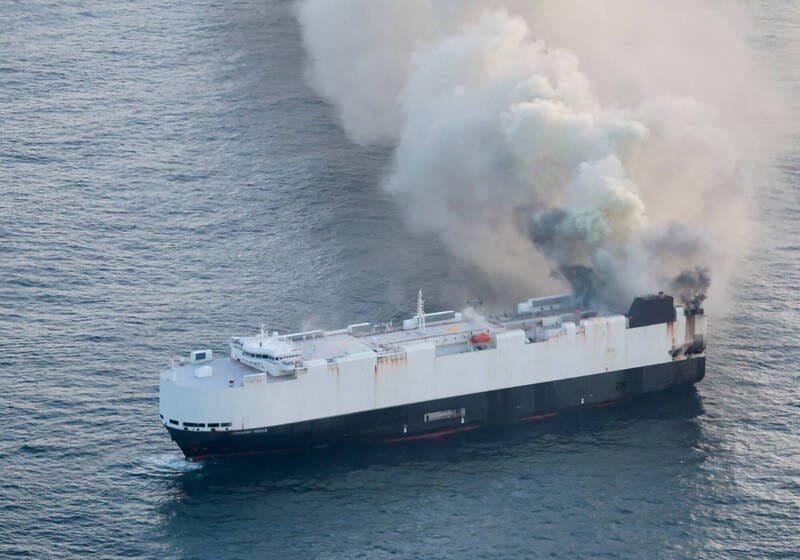
Pacific Car Carrier Fire Raises Alarm on Dangerous Cargo Risks
In early June, the “Morning Midas,” a car carrier transporting nearly 3,000 vehicles—including around 800 electric vehicles—caught fire in the middle of the Pacific Ocean. While all 22 crew members were safely rescued, the incident once again highlights the growing safety concerns surrounding the transportation of hazardous cargo, especially lithium battery-powered EVs.
As electric vehicles become mainstream worldwide, the global movement of lithium-ion batteries has surged. While these high-energy batteries are central to clean energy innovation, they also carry significant fire risk under certain conditions—such as overheating, collision, or manufacturing defects. In confined spaces like cargo holds, such fires are extremely difficult to contain and extinguish.
This is not the first such incident. In 2022, the “Felicity Ace” famously sank after a fire involving EVs onboard, resulting in losses exceeding $500 million. Although the exact cause of the “Morning Midas” fire is still under investigation, the event underscores several systemic weaknesses in dangerous goods shipping:
- Improper classification – Many EVs are not formally declared as dangerous goods, allowing them to bypass stricter regulations.
- Outdated vessel systems – Most car carriers lack the proper firefighting infrastructure for battery-related fires.
- Lack of global standards – Guidelines for loading, storing, and segregating lithium batteries at sea remain vague or inconsistently enforced.
Maritime shipping is the backbone of global trade, now navigating the era of new energy. But “green” does not automatically mean “safe.” Risk management for transporting electric vehicles and batteries must become a priority. This includes urgent collaboration between the International Maritime Organization (IMO), shipowners, freight forwarders, automakers, and insurers.
Without decisive action, another “Morning Midas” could be just a matter of time—and next time, the consequences may be even more devastating.
